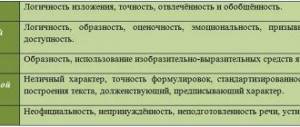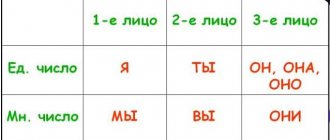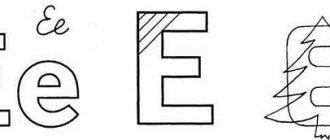Russian language lessons
Create your teacher website PC and PPC courses Video lessons Olympiad Webinars for teachers
- home
- Russian language
- Lessons
Watch and download free lessons, tests, notes, presentations and other useful materials on the Russian language for teachers and students. In this section you can get Russian language lessons .
- All 27644
- Lessons 15643
- Presentations 4320
- Tests 1464
- Planning 2090
- Events 1059
- Other 3068
- All classes
- For preschoolers
- 1 class
- 2nd grade
- 3rd grade
- 4th grade
- 5th grade
- 6th grade
- 7th grade
- 8th grade
- 9th grade
- Grade 10
- Grade 11
| “A Word about the Russian Language” Lesson summary in 10th grade This file contains a summary of a Russian language lesson in 10th grade on the topic “A Word about the Russian Language.” This is a lesson on getting acquainted with the Russian language textbook (10-... 10/05/2020 Lyubovskaya Irina Anatolyevna 13 0 |
| Russian language lesson “Emphasis” Summary of the Russian language lesson in 1st grade: “Emphasis”. Lesson progress 1. Organizational moment. 07/18/2020 Kizlevich Svetlana Alaksandrovna 101 0 |
| Russian language lesson » Rules for writing the separating words b and b. Roles b". Grade 2 Observation of the position of writing separating signs ь and ъ. Opening spelling rule separator... 09/08/2020 Zhuravleva Marina Vladimirovna 32 0 |
| Participles of the perfect and imperfect forms Developed taking into account the different levels of students’ preparation... 08/18/2020 Pisareva Natalya Vladimirovna 40 0 |
| Lesson summary in the Russian language This lesson in the Russian language is the first in studying the topic “Spelling prefixes pre- and pre-.” To achieve the goal of the lesson, tasks were selected that corresponded to age characteristics... 09.26.2020 Rashinina Lidiya Nikolaevna 26 0 |
| Scenario for a Russian language lesson in 5th grade The development of the lesson is intended to discover new knowledge… 08/20/2020 Baksheeva Galina Vladimirovna 39 0 |
| “Common Words” IV. Work on the topic of the lesson 1. The teacher’s word with elements of conversation The vocabulary of the Russian language includes words that are understandable to everyone, they are used everywhere, both verbally and ... 08/20/2020 Murtazalova Lali Magomedovna 31 0 |
| Syntactic connections of words in a phrase Lesson development, intended for use by a teacher in a Russian language lesson... 04/22/2020 Aliya Gayazovna Khasanova 93 1 |
| Writing suffixes for verbs in the past tense. A lesson in learning new things. Writing suffixes for verbs in the past tense…. 06/03/2020 Shushakova Marina Nikolaevna 57 0 |
| Russian language lesson in 5th grade on the topic “Definition”. introduce the definition as a secondary member and methods of its expression, its role in enhancing the expressiveness of artistic description…. 02/10/2020 Fedorenko Elena Nikolaevna 86 1 |
| Technological map of the lesson. Lesson topic: “Syllables. Hyphenation". Familiarize students with the rules of word hyphenation. Formation of subject skills: spelling skills: - divide words into parts for transfer. way of dividing words into layers... 06.16.2020 Vetruk Tatyana Viktorovna 103 1 |
| Adjective as a part of speech Familiarity with the adjective, its role in speech, the ability to find an adjective in the text…. 04/26/2020 Golubina Natalya Viktorovna 85 0 |
| "Word. Composition of a word" This lesson may be useful for Russian language teachers... 09.16.2020 Smirnova Irina Aleksandrovna 31 0 |
| Nouns with the suffixes -ek and -ik I offer a lesson in discovering new knowledge. The lesson complies with the Federal State Educational Standard... 08/30/2020 Prishchep Valentina Nikolaevna 49 0 |
| -O -E after sibilants and C to systematize and generalize students’ knowledge about the spelling of vowels after sibilants in different parts of the word…. 06.25.2020 Chekhonadskikh Yulia Sergeevna 85 0 |
| Russian language lesson on the topic “Spelling verbs in the indefinite form and 3rd person” Russian language lesson on the topic “Spelling verbs in the indefinite form and 3rd person”, 4th grade… 10/06/2020 Chernysheva Elena Vladimirovna 7 0 |
| Lesson - KVN in the Russian language for 3rd grade students. 3 class teams take part in the competition. Each team has its own name. The composition of the jury is selected in advance. In the classroom there are posters with statements about the Russian language with proverbs, riddles, charades... 04/11/2020 Bolatova Gulirano Boltaevna 90 0 |
| Test in the Russian language in the VPR format. The test is designed to identify the level of preparation for the VPR... 09.21.2020 Kalinina Nina Nikolaevna 16 0 |
| “Homogeneous members of a sentence” This development is intended for Russian language lessons on the topic “Homogeneous members of a sentence”... 09.16.2020 Osipova Lyudmila Aleksandrovna 31 0 |
| “The concept of homogeneous members” Purpose of the lesson: to consolidate what has been learned about monocomponent and incomplete sentences; deepen students’ understanding of homogeneous members, consolidate skills... 08/11/2020 Murtazalova Lali Mutalimovna 32 0 |
- ← Back
- Continue →
Russian language lesson on the topic “Preparation for an essay-argument” (grade 11)
Lesson “Preparation for an essay-argument” (grade 11)
The purpose of the lesson:
- prepare students to write an essay-argument on a given text;
- improve text analysis skills;
- cultivate a respectful attitude towards other people’s opinions, develop the ability to correctly and convincingly substantiate one’s point of view.
Equipment:
original text; criteria for assessing essay-reasoning; recommendations for students on preparing to write an argumentative essay; presentations.
During the classes
I. Setting the goal of the lesson.
II. Preparing for an essay-reasoning.
At the beginning of the lesson, let’s remember what plan your essay should be based on? What parts should it consist of?
Plan for an essay-reasoning.
1. Introduction with the formulation of the problem raised by the author in the text.
2. Commentary on the formulated problem of the source text.
3. Reflection of the author's position.
4. Own opinion on the problem, justified by 2-3 arguments.
5. Conclusion.
(diagram on the board)
— Before we start reading the text, familiarize yourself with the recommendations “How to correctly understand the source text?”
1. What is the text about? Decide on a theme.
2. What questions does the author consider? Find problems.
3. What issue does the author discuss most? State the main problem of the text.
4. What does the author want to say with his text? Define the idea.
5. How did the author help us determine his purpose? The role of linguistic means.
6. Why were these particular linguistic means used?
7. How does the author himself answer the questions (problems) posed?
— We read the text. As you read, write down your initial observations, your first impression.
(1) People want to be happy - this is their natural need. (2) But where does the very core of happiness lie? (3) (I’ll note right away, I’m only thinking, and not expressing truths that I myself only strive for.) (4) Does it lie in a comfortable apartment, good food, smart clothes? (5) Yes and no. (6) No - for the reason that, having all these prosperity, a person can suffer from various spiritual adversities. (7) Does it lie in health? (8) Of course, yes, but at the same time no.
(9) Gorky wisely and slyly noted that life will always be bad enough for the desire for the best not to fade away in humanity. (10) And Chekhov wrote: “If you want to be an optimist and understand life, then stop believing what they say and write, but observe and delve into it yourself.” (11) Pay attention to the beginning of the phrase: “If you want to be an optimist...” (12) And also - “look into it yourself.”
(13) In the hospital I lay in a cast up to my chest for almost six months on my back, but when the unbearable pain passed, I was cheerful. (14) The sisters asked: “Rozov, why are you so cheerful?” (15) And I answered: “What? It’s my leg that hurts, but I’m healthy.” (16) My spirit was healthy.
(17) Happiness lies precisely in the harmony of the individual; they used to say: “The Kingdom of God is within us.” (18) The harmonious structure of this “kingdom” largely depends on the individual himself, although, I repeat, the external conditions of a person’s existence play an important role in its formation. (19) But not the most important one. (20) With all the calls to fight the shortcomings of our life, which have accumulated in abundance, I will still first of all highlight the fight with myself. (21) You can’t expect someone from the outside to come and make your life good. (22) You must fight for the “honest fellow” in yourself, otherwise there will be trouble. (V. Rozov)
- So, let's start working on the text. Let's fill out the table.
1. Introduction.
— What do we first determine when starting to work on any text? (Topic.)
— What is the topic of the text? ( Subject
– what is this text about)
Decide on a topic
-What is the text talking about? (About happiness.) What else do we define? (Idea.)
— What is the idea of the text? ( Idea
- what the author of the text wanted to say)
— For what exact purpose did the author create his text? What did he want to say? What feelings did you want to convey? (To make readers think about what happiness is and how to achieve it.)
- What should we move on to now?
Define your style
— What is the style of this text? (Publicistic.)
— Why did the author choose this particular style? What are its main features?
The main stylistic features are logic, imagery, emotionality, evaluativeness, appeal.
The main language means are a combination of book and colloquial vocabulary; expressive syntactic constructions (exclamatory sentences, rhetorical questions, parcellation); figurative and expressive means of language (metaphors, similes, allegories, etc.)
— What is the next step in our work?
- What type of speech does this text belong to?
— How is a text-reasoning constructed? (Initial thesis; arguments, including examples and evidence; conclusion.)
- Now we can begin to formulate the problem. Define the problem.
- What is the problem? (question requiring research)
— Formulate the problem of this text. (What is happiness?)
— What category can this problem be classified into? (Philosophical.)
- Let's remember in what form the introduction can be written. (Presentation)
1. In the form of lyrical reflection.
2. In the form of a series of rhetorical questions consonant with the problem of this text.
3. In the form of a discussion about the title that can be given to this text.
4. In the form of a dialogue with an imaginary interlocutor about the problem of this text. And etc.
— Let’s write an introduction to the essay. Don't forget that it should be short - 3-4 sentences! Use cliches if necessary.
- Read what you got.
Possible entry:
What is happiness? This is an eternal philosophical theme that has confronted man for many centuries. Viktor Rozov has his own view on this problem.
Consider the composition
—What do we call composition? (construction, arrangement and relationship of parts of the text)
— Find the compositional parts of the argumentative text in the source text.
2. Write a comment
"following the author."
- have an emotional impact on the reader;
- make the reader think about problems;
- try to find the causes of the depicted negative phenomena;
- convince the reader of the correctness of your position;
- use a range of convincing arguments;
- openly declare your civic position in relation to ...;
- encourage the reader to...
The author asks the question: “But where lies the very core of happiness?” The author uses a question-and-answer form. He is looking for different answers to the question of what happiness might consist of. The famous playwright turns to the statements of famous writers and facts from his life. (Eliminate repetition).
3. Author's position.
Determine the author's position
— What is the author’s position? (the answer that the author gives to the problematic question posed by him, what the author thinks about all this)
—Which line contains the author’s main idea?
—What moral conclusion does he draw to his thoughts?
— Can we say that the author’s position is expressed directly?
— What linguistic means does the author use to express his position?
— We formulate the author's position.
Use cliches if necessary.
The author's position is that happiness exists in the harmony of the individual, that is, in a reasonable combination of material comforts and peace of mind.
4. Reflection of one’s own position
Determine your own position, select 2-3 arguments
- What is an argument? (argument, reason, judgment given to prove the expressed thought)
— What is your attitude to the author’s position? Do you agree or disagree with his point of view? Do not forget that your statements must be correct and evidence-based.
I cannot but agree with the opinion of Viktor Rozov. Happiness is the relationship between spiritual and material values. Many writers have addressed this topic.
The story by V.P. Astafiev “The Dream of the White Mountains” talks about a man who knew how to enjoy simple things, while having little material wealth. Akim is happy because he is in contact with nature, because he lives in his native land, because he fell in love with a girl. The famous academician D.S. Likhachev also considered aspects of happiness in his “Letters about the good and the beautiful.” The publicist believes that a person’s happiness lies in being surrounded by loving people, material wealth and moral values. Life acquires meaning when a person is spiritually rich.
5.
Conclusion.
- Remember in what form a conclusion can be written?
- Conclusion - impression.
- Answer to the question.
- Call to action.
- Ending using a quote.
What form of conclusion is most appropriate for this text? (Call to action.)
- Write a conclusion.
Indeed, happiness lies in the direct interaction of material and spiritual goods, which are harmoniously combined.
III. Summarizing. Homework.
- So, we have done the preparation, and now I think you can easily cope with the job. Your homework: write an essay based on the source text.
3


